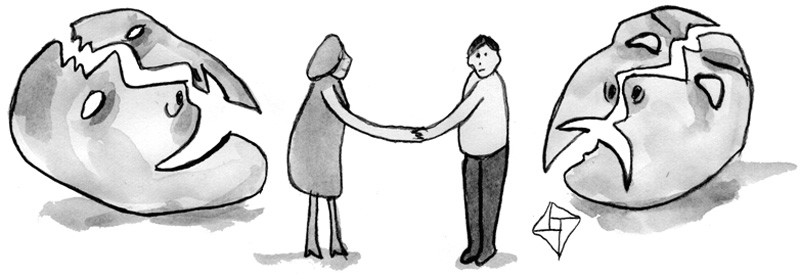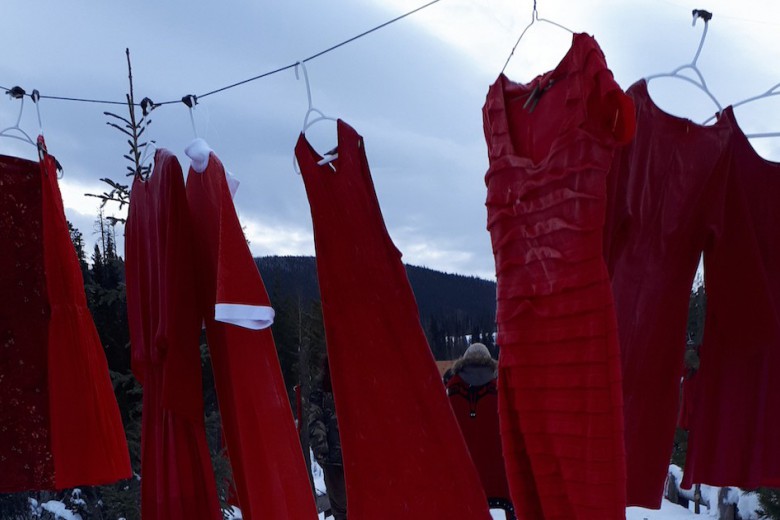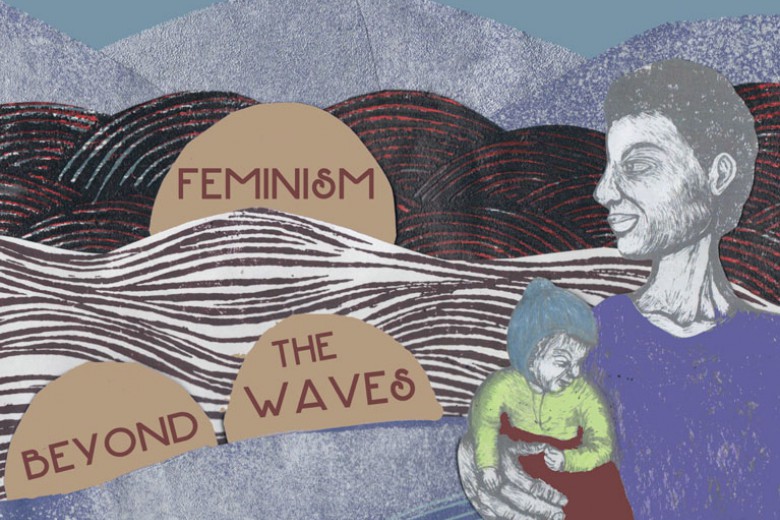
Hey you with the Y chromosome: Do you believe that women and men should have equal rights and opportunities? If so, then you may have what it takes to become a pro-feminist man.
The fight against sexism needs men who are willing to educate and challenge themselves and others. But taking a stand against sexism can be easier said than done. From a very young age we have internalized our culture’s hatred and fear of the feminine. Men and women alike have been socialized in a sexist society, and many of us carry the scars to prove it. We all have sexism inside of us, and getting rid of that sexism can be a long and sometimes painful process.
Men enjoy countless benefits from living in a patriarchal society. But we also suffer from the social and emotional constraints that masculinity places on us. We have much to gain from ending sexism and breaking down strict gender roles.
This initial self-screening questionnaire may help you identify some ways that patriarchal and sexist norms influence your attitudes and behaviour. Identifying these blind spots is the first step to becoming a better ally. Be patient with yourself; answer each question honestly, and analyze your own responses. What do you feel, and why do you feel it? If there are things you would change about your own attitudes and behaviour, what are the barriers that might keep you from changing? How can you overcome these barriers?
You may want to discuss this questionnaire and any issues it brings up with women (or men) whom you trust. But beware: men have a tendency to either burden women with our emotional needs or withhold our feelings entirely. Please think carefully about your intentions before discussing this questionnaire with women in your life. Are you doing it because you feel guilty, or because you really want to change? Are you seeking validation, or real guidance?
Good luck!
General questions
Do you believe women are “naturally” nurturing, weak, or emotional?
What does it mean to “act like a man”? What is “manhood”? Are you happy with this definition? What would you change about it?
Define power. When have you felt the most “powerful”? Who are some powerful people in your life?
What is the relationship between power and violence, or power and physical/verbal/emotional abuse?
How do you relate to women in positions of authority?
Do you ever use words like “bitch,” “whore,” or “slut” to describe or insult women you dislike? If so, why do you choose these particular words? What words would you use to describe men in similar circumstances?
Do you ever make jokes or negative comments about the sex lives of women? Would you make the same jokes about men?
Have you ever used the words “politically correct” to dismiss criticism of your words or behaviour?
Is anti-sexism a priority for you? Do you have any feminist role models?
Domestic/household questions
Do you contribute your fair share to household chores and domestic life? Would your partner agree?
How many of the following activities do you contribute to in your home:
Sweep and mop floors and clean carpets
Wash and put away dishes
Clean stove, counter tops, sinks and appliances after food preparation
Shop for food, put away food, and make meals for the household
Do house laundry (kitchen towels, bathroom hand towels, etc.)
Clean up common spaces
Deal with garbage, recycling and compost
Take care of bills, rent, utilities
Deal with the landscaping and gardening
Keep bathrooms clean
Feed, clean up after, and take care of pets
Who decides who does what?
Friendship
Do you have trouble expressing your emotions?
Do you cultivate caring, nurturing relationships with other men in which you can discuss your feelings?
Do you talk to other men about sexism or violence against women?
Do you raise objections when men make sexist or misogynist comments? Do you seek to educate your sexist or misogynist friends?
Do you worry that your male friends might think less of you if you express anti-sexist opinions?
Do your female friends consider you to be an ally?
Are you aware of the fact that women live under the constant pressure of mainstream beauty standards? How much do you think these beauty standards influence your behaviour towards women in your life?
Sexual/romantic relationships
Do you discuss your shared, mutual responsibility for contraception and STD screening with your partner prior to sexual contact?
How much do you know about reproductive health, menstruation and menopause?
Do you ask for consent?
Do you see jealousy and possessiveness as “natural” parts of a loving relationship? Why/why not?
Do you ever feel jealous when your partner spends time with other people, especially other men? Why/why not?
Do you cheat on your partners?
Do you think that the widespread availability of pornography is harmful to relationships between men and women? Why/why not?
Do you know if your partner has suffered sexual abuse, rape, or physical abuse? If so, are you sensitive to post-traumatic stress that can be triggered by similarities in situations that you may find yourselves in?
Have you ever physically, psychologically, or emotionally abused a woman? If so, what were the consequences for you? For the woman you abused? Have you sought help?
Children & childcare
Do you spend time with kids? If so, do you spend it in a way that is gendered (i.e., do certain things with boys and other things with girls)?
Do you make childcare a priority at events you are involved in organizing?
If you are a father, do you co-parent your children? (i.e., do you spend equal time, energy, effort, and money to raise them?)
Do you automatically assume that your children should take your last name and not your partner’s? Why/why not?
These questions borrow liberally from the “Are you a manarchist” questionnaire, and from “Getting to know yourself: some questions for men,” from On the road to healing: A booklet for men against sexism, issue #1, which is available from www.pscap.org.
Resources for further education and action:
“Masculinities: Male Roles and Male Involvement in the Promotion of Gender Equality. A Resource Packet”
Michael Flood, “Frequently asked questions about pro-feminist men and pro-feminist men’s politics.” 3rd edition, January 3, 2002.
“Stopping Rape: What Men Can Do”
Robert Jensen, “Sexuality, masculinity and men’s choices”
The Men’s Bibliography: A comprehensive bibliography of writing on men, masculinities, gender, and sexualities. Compiled by Michael Flood.
Differentkindofdudefest’s reading guide






